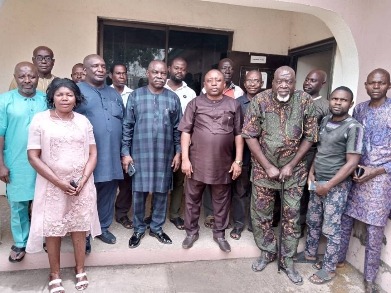FAO Conducts Training of Trainers Workshop on Fodder Production in North East Nigeria
This post has already been read 24283 times!
The Food and Agricultural Organization (FAO) of the United Nations has successfully concluded a week-long Training of Trainers (TOT) workshop on fodder production in Maiduguri, Borno State. The workshop aimed to enhance the capacity of government extension workers and FAO implementing partners in alternative fodder production techniques to strengthen livestock sustainability in the North East region of Nigeria.
Funded by the Norwegian government, the initiative seeks to equip farmers with the necessary skills to produce their own feed and pastures, promoting self-sufficiency and resilience within the livestock sector. The workshop focused on pasture development, a crucial aspect of livestock production that impacts animal health, productivity, and sustainability of farming systems.
The TOT session, the second of three planned, equipped 22 participants from Borno, Adamawa, Yobe, and Taraba states with the necessary skills and knowledge in alternative feed and fodder production. The first group of trainers has commenced training farmers and herders across the region.
Lead trainer Aishatu Girgiri emphasized the importance of transitioning from traditional methods of animal feed production, advocating for the deliberate cultivation of animal feed using diverse livestock approach seeds. The Director General of the Borno State Livestock Management Agency, Bukar Ali Usman, commended the initiative, describing it as a critical step toward ensuring sustainable livestock feed and preventing farmer-herder conflicts.
FAO Nigeria’s National Livestock Specialist, Abdulrahman Mohammad, highlighted the need for feed availability in the livestock sector, noting that the added-value techniques learned in the training would significantly enhance livestock productivity.
The training concluded with a 3-day field work session at the Lake Chad Research Institute and the University of Maiduguri, where participants learned about making multi-nutrient block, mineral block, value addition to crop residues, hay and silage making, and exploring the environmental benefits of sustainable livestock practices.
A total of 40 participants, including 12 women, will benefit from the training within three years, transferring knowledge and expertise to 825 farmers and herders who will receive pasture seeds and necessary inputs for hay and silage making and hydroponic production.
The initiative aims to address the persistent challenge of livestock feed shortages in the region, reduce competition for land and resources, and mitigate farmer-herder conflicts.






